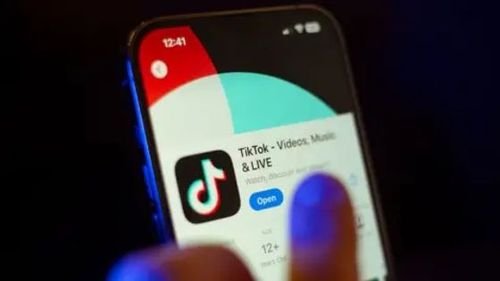On January 19, 2025, TikTok, the popular short-form video app with over 170 million U.S. users, shut down in the United States. The event was precipitated by a series of legislative and judicial actions that culminated in a Supreme Court decision that upheld a federal law that required TikTok’s parent company, ByteDance, to give up ownership of the app or face a nationwide ban. The law was passed in April 2024 and upheld by the Supreme Court on January 18, 2025.

https://newshedline643.blogspot.com/2025/01/blog-post_18.html
Legislative and judicial action
The ban was first proposed by former President Donald Trump in 2020, but it wasn’t until April 2024 that Congress passed a bill requiring ByteDance to sell TikTok to a non-Chinese owner by January 19, 2025. The bill was signed into law by President Joe Biden, who is set to leave office on January 20, 2025. The Supreme Court heard arguments from TikTok and Bytedance against the law on January 10, 2025, and ruled unanimously to uphold the law on January 18, 2025, rejecting TikTok's challenge that the ban violated the First Amendment.

TikTok's response and user impact
In response to the Supreme Court's decision, TikTok announced that it would shut down in the United States unless the Biden administration provided assurances that no action would be taken against the company if the ban went into effect. However, the Biden administration stated that it was up to the incoming Trump administration to take action. TikTok's CEO, Shu Chiu, attended Trump's inauguration as the chief guest, indicating a potential policy change that could impact TikTok's future in the US.
TikTok stopped operating in the US late on January 18, 2025, shortly before the federal ban went into effect. The app was no longer available on Apple's iOS App Store or Google's Play Store, preventing new downloads and updates. TikTok viewed the move as a last resort, as it was fighting the ban in court and attempting to reach a settlement with the US government.
User reactions and alternatives
The impending ban has created significant uncertainty among TikTok's user base, with many struggling to find alternatives. Users have been directed to other platforms such as YouTube, Instagram, and RedNote, a Chinese-owned app that has gained popularity among TikTok users. However, concerns have been raised about RedNote's potential security risks, as it is owned by Shanghai-based Xingyin Information Technology, which government insiders and experts fear poses a greater threat to national security and privacy than TikTok.
Legislative efforts to extend the deadline
In an effort to delay the ban, Senator Edward J. Several lawmakers, including Markey, Ron Wyden, Cory Booker, and Representative Ro Khanna, introduced the "Extend TikTok Deadline Act." The bill seeks to give ByteDance an additional 270 days to sell TikTok, and it has already garnered more than 700,000 signatures. However, as of January 19, 2025, the ban is on track to take effect.
Donald Trump, who will be sworn in as president on January 20, 2025, has expressed support for TikTok, saying he has a "warm spot" in his heart for the app. Trump has also confirmed that he has spoken to Chinese President Xi Jinping about TikTok, indicating a potential policy change that could impact the app's future in the US. Trump has suggested he might give TikTok a 90-day reprieve from the ban after taking office, but it's unclear whether he can circumvent the ban entirely.
Impact on TikTok employees and operations
TikTok has taken steps to reassure its U.S. employees, saying their jobs, pay and benefits are safe even if the ban is not resolved before the Jan. 19 deadline. The company has also said it will continue to control the situation to protect employees and users. TikTok's leadership has emphasized that the ban only affects the U.S. user experience, not the entities through which employees are employed.
Future outlook
The ban on TikTok is a pivotal moment in the ongoing debate over national security, data privacy and the regulation of technology companies with foreign ties. While TikTok's potential absence leaves many creators and businesses in limbo, it also opens the door to new opportunities. TikTok is pushing its sister app Lemon8, which allows users to upload photos and videos, as a potential alternative.
Conclusion
As of Jan. 19, 2025, TikTok is shutting down in the United States, marking the end of an era for one of the most popular social media platforms. The ban has significant implications for users, creators, and businesses, and TikTok's future in the US remains uncertain. The incoming Trump administration could play a key role in determining the app's fate, but its impact on the social media landscape is still looming.